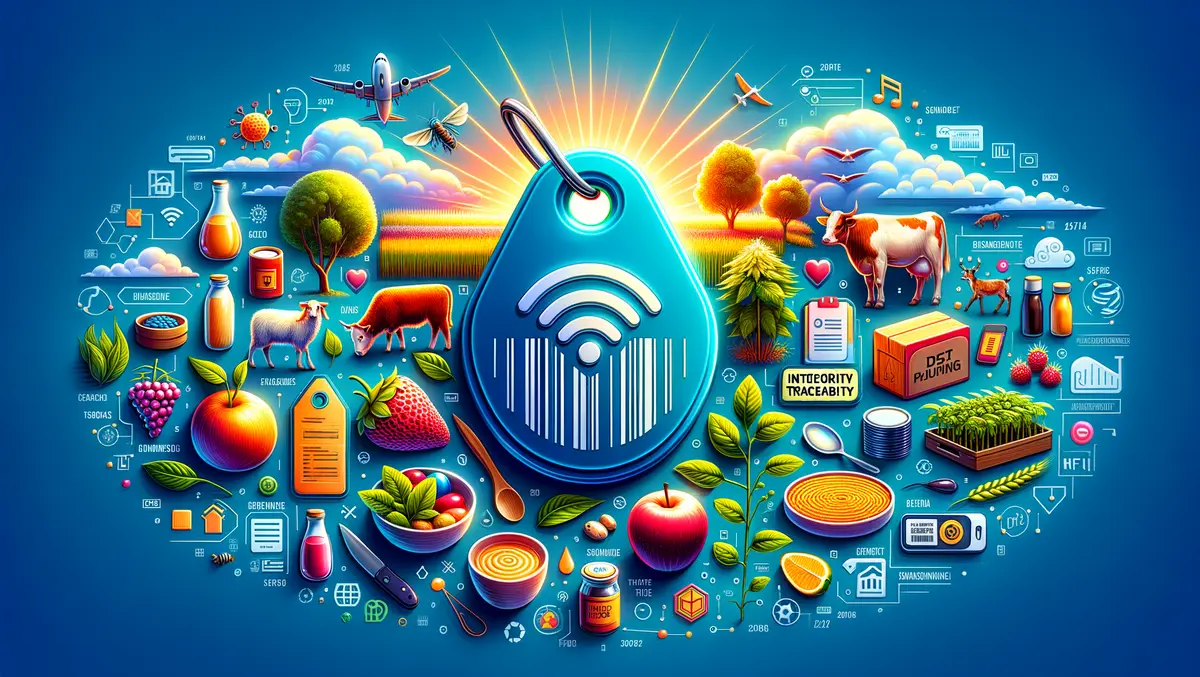
AWEX protects biosecurity, integrity and traceability with RFID tags
The Australian Wool Exchange Ltd (AWEX) is a not-for-profit member services organisation with direct links to international customers of Australian wool — from processors to garment manufacturers to retail. Its membership includes Australian wool brokers, processors, exporters, private treaty merchants, wool growers and associate members representing all sectors of the Australian wool industry.
AWEX, registered with the Australian Charities and Not-for-profits Commission Act 2012, is a key industry service provider to the Australian and international wool industry. It was established in 1993 to provide an internationally competitive system for the fair, efficient and informed trading of Australian wool, as well as to facilitate self-regulation amongst market participants and develop and implement innovations.
CHALLENGE
AWEX provides industry quality assurance programs and integrity schemes, market information, wool appraisal and clip inspection, as well as administration services to all wool industry participants, and also operates an industry sustainability and integrity program. Among its services are on-farm inspections, wool pack quality management initiatives, administration of wool-selling programs and registration of wool classers.
AWEX identified several issues with traceability, data integrity, logistical efficiencies and provenance that, if addressed, would add significant value and benefit to the Australian wool industry. These attributes underpin the transparency and integrity of the Australian wool industry improving its competitive edge globally..
Driven in part by the possible introduction of foot-and-mouth disease (FMD) in 2019, which threatened billions of dollars in Australian exports, AWEX sought to improve the traceability of wool via an independent digital system that would enable the quick and efficient identification of biosecurity threats. Additionally, improved traceability would reduce shipment errors and lost wool while assisting in the logistical management of warehouses as the industry moves quickly towards automation.
It is a transition that would increase global efficiencies, as wool bales require labelling to ensure proper identification as they are transferred from farm to wool store, loaded into containers and shipped to processors worldwide — historically, a manual, error-prone process.
"With the support of the entire Australian wool industry, AWEX is in a unique position of being the one organisation that can implement a new RFID-based traceability system and standard that will impact the entire industry," said Mark Grave, CEO of AWEX.
While previous attempts to utilise barcodes and RFID to offer a unique identifier for each wool pack were unsuccessful, the idea was never completely abandoned. In 2014, AWEX resumed its RFID investigations, this time in conjunction with HID. Full trials to demonstrate the technology's feasibility determined that success would require a durable UHF tag that could survive the harsh industry pipeline and be available at an acceptable price point.
In 2021, AWEX was awarded funding by the Department of Agriculture, Water and the Environment as part of their Traceability Grants Program to assist in implementing its eBale program, highlighting the importance placed on traceability and biosecurity by the Australian Government.
"Registration of wool pack manufacturers by AWEX provided a unique opportunity to introduce technology that will benefit both Australian and international stakeholders. In addition, there is increased interest in traceability as it can assist information flow, provenance and biosecurity," said Mark Grave.
SOLUTION
Working with HID and its implementation partner, Adilam Technologies, AWEX deployed eBale tags, a customised version of an HID IQ Pro Label RFID tag with RAIN RFID (UHF) technology based on Impinj M730 chips. The high-end, thin and flexible tags can withstand exposure to high temperatures, chemicals, pressure and torsion with uncompromised performance. Able to deliver consistent and reliable readability despite exposure to the extremes of industrial processing, HID RFID tags are optimised for non-metallic, flat or slightly curved surfaces and feature special construction to ensure higher durability compared to traditional label designs.
Each eBale tag has a unique number that is stored both on an RFID chip and as a QR code. Wool data is captured on-farm through the WoolClip program, an electronic wool classer's specification and data platform developed by AWEX, and electronically transferred to the selling agent, complete with the unique enable tag. The tags also facilitate information transfer in warehouses, logistics, and transport, as well as by domestic and international processing customers.
"We were looking for a fit-for-purpose tag; one that did not require line of sight to read, could read multiple tags at once, and confirm authentication of bales using a transponder ID with Electronic Product Code non- counterfeiting standard, with application to traceability and quality control from farm to processing mill. HID provided us with a UHF tag that meets these requirements," said Mr. Grave.
RESULT
As of July 2023, all wool packs imported into Australia will contain an eBale tag, with an initial commitment from AWEX to secure five million tags for the market over two and a half to three years of wool production.
Mr. Grave notes that the implementation of eBale tags has been welcomed by the Australian wool industry, winning broad support from leading brokers, exporters and processors. The tags are expected to deliver significant efficiencies, improve the accuracy of information transfer and traceability, and ultimately render the paper-based, error-prone system unnecessary.
"With the assistance of HID, AWEX was able to identify a UHF tag capable of surviving the harsh wool supply chain and apply it to wool packs, resulting in commercially available eBales and the world's first nation-wide introduction of RFID technology to wool packs," said Mr. Grave. "Ultimately, the unique bale identification number will be utilised for full traceability, provenance and quality control along the entire supply chain."

